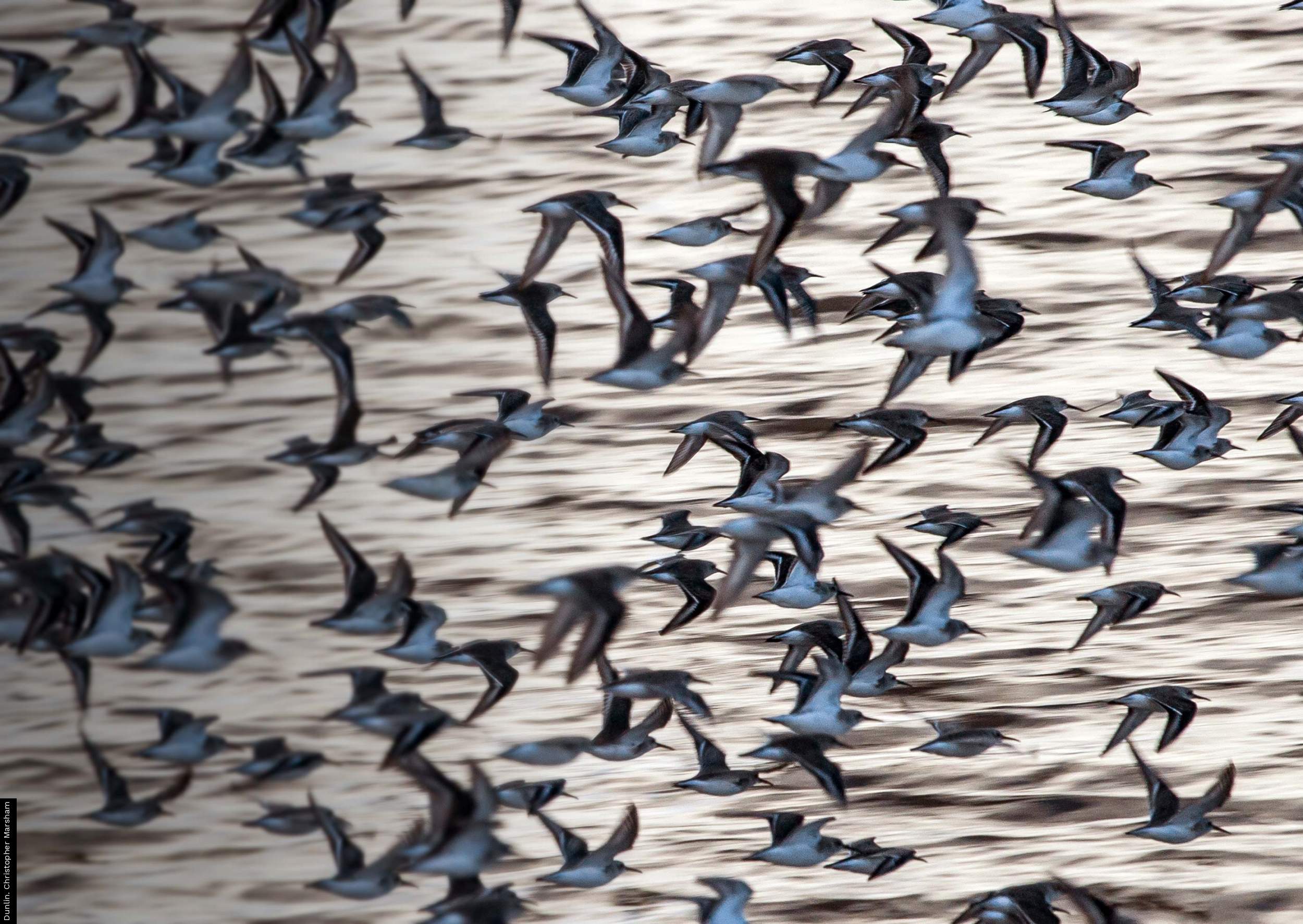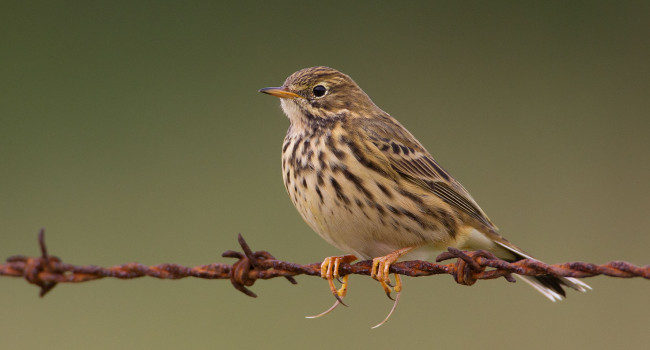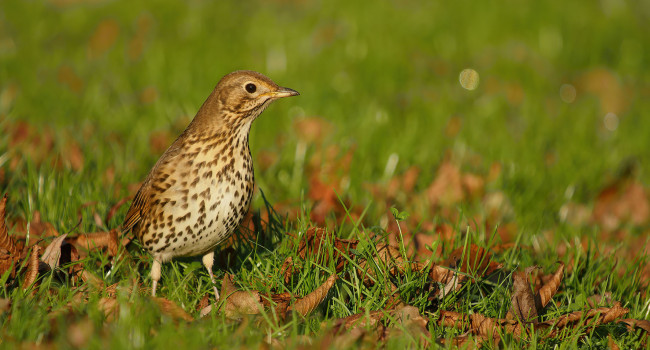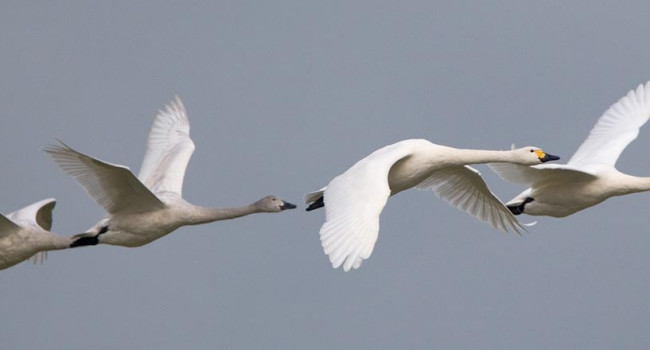Nationwide school science programme helps scientists discover effects of climate change on soils
23 Mar 2018 | No. 2018-06
- 15,000 school children participate in ‘What’s under your feet?’ project to study soil in school grounds
- Research from ongoing study makes link for the first time that dry summers are affecting breeding birds, which rely on earthworms and other soil invertebrates for food
- Number of UK earthworms has declined massively during periods of dry weather
- Schools encouraged to participate in further digs this month and later in the year to further aid research
This ongoing study, supported by EDF Energy and the British Trust for Ornithology (BTO), has been able to identify that dry summer weather may be putting some of our favourite bird species at risk as it triggers a significant drop in the number of earthworms and invertebrates in parts of the UK. The research, undertaken by thousands of schoolchildren in a nationwide science project to understand the effects of climate change on our soils and ecosystems, published some if its findings today in a new report in an international scientific journal.
Working with EDF Energy’s environmental education programme, The Pod, the British Trust for Ornithology (BTO) has designed the What’s Under Your Feet? project to enthuse young people about the natural world and encourage the next generation of ecologists so we are better informed about what’s needed to maintain the delicate balance of lifecycles on our planet and the impact we have on them.
Since 2015, nearly 15,000 school children from over 500 schools across the UK have been digging up small sections of their playing fields once a term in October, March and June, and counting and identifying the creatures they found living in the top 5cm of the turf. The results are contributing to real science and have just been published in an International Journal of Soil Biology, and show how sensitive the animals that live under our feet are to dry weather.
It’s vital that we all do more to understand the natural world and the impacts of climate change. BTO President Chris Packham spearheading the campaign said,
“We can all do science. In fact, it's not that we can, but we should and we must do it. Because our planet has reached a critical point where our only chance of preserving what remains of it and our ability to live on it comes down to us better understanding it. If we don't understand it we won't be able to fix it.”
The results found strong seasonal patterns in the abundance of different invertebrates, but most dramatically, the numbers and biomass of earthworms declined massively during periods of dry weather. Whilst soil biologists avoid sampling for earthworms in the summer for this reason, these new results highlight how sensitive soil processes can be to the potential effects of drought. With increasing likelihood of summer drought forecast for parts of the UK in the future, this information demonstrates how vital it will be to manage our soils effectively to maintain their health in a changing climate.
Dr Blaise Martay, the lead author of the study, said, “This study quantifies for the first time how periods of dry weather in the summer can affect breeding bird populations like thrushes and starlings, which rely on earthworms and other soil invertebrates to feed. Many of these are declining in southern Britain, which our results suggest may be because they struggle to find enough food during hot dry summers.”
Dr James Pearce-Higgins, the BTO Director of Science, said, “This project is one of the most exciting that I have been involved in – using carefully designed methods to engage children and teachers with real science. Not only is this helping to provide the evidence to tackle important problems, but hopefully will inspire some of the next generation of scientists. The next dig is coming up in March, so whether you are a pupil, teacher or parent, encourage your school to sign up and get involved!”
Robyn Thorn, Pod Digital Programme Manager at EDF Energy, said, “At EDF Energy we know we have to tackle climate change head-on and that this is a human challenge not just a technical one. Our education programme, the Pod, works with thousands of schoolchildren from across the UK to help young people understand the impact of topical science issues, like climate change at a local level. What’s Under Your Feet is a great example of this in action - giving school children a taste of what it’s like to be a real-life ecologist or research scientist while helping to improve the environment. We’re so excited to see the children getting really stuck-in and not only learning, but also taking so much pleasure from it.”
Chris Packham added, “By taking part in What's Under Your Feet you are getting involved in citizen science and contributing to a greater understanding of the natural world - producing remarkable results by doing simple tasks to collect information about what lives in the soil. Please join us and help us understand this place and therefore be better placed to look after it.”
What’s Under Your Feet? addresses two key priorities from the 25 Year Environment Plan launched by the Government in January this year – Improving Soil Health and Encouraging Children to be Close to Nature.
Healthy and fertile soil is essential for growing food for us to eat. And soil invertebrates, like earthworms, ants and beetles are vital for healthy soils as they are responsible for important ecological processes like nutrient cycling. Soil invertebrates are also incredibly important as part of the food chain and feed other species like badgers, hedgehogs and some of our favourite bird species like Blackbirds and Song Thrushes. However, there was little information about how their populations were doing across the country to help us understand how they may be affected by climate change, until now.
To see the full paper, please visit
https://www.sciencedirect.com/science/article/pii/S0031405617301865?via%3Dihub
Link to video
For more about the project, please visit https://www.bto.org/wuyf
Notes to editors
1. About the British Trust for Ornithology (BTO)
The British Trust for Ornithology (BTO) strives to ensure that birds and their habitats are protected for future generations to enjoy. We have an 85-year track record of collating, analysing and delivering robust, respected scientific information that underpins conservation action. Since our beginnings as a small group of volunteer birdwatchers determined to make a difference, we have grown to a network of more than 60,000 volunteers. Our expert scientists design surveys, research programmes and monitoring schemes that provide the evidence required to tackle some of the most pressing issues affecting birds and their habitats. Our volunteers contribute the equivalent of over 900 full-time staff to monitoring birds every year. As a result, we are the proud custodians of some of the most extensive and long-running datasets about birds anywhere in the world. Our scientists convert this volunteer-gathered data into popular and peer-reviewed publications which provide the foundations of effective conservation action. We are succeeding in shedding light on the worrying issues facing the UK’s birds and their habitats and are making significant progress in understanding actions that can be taken to reverse declines in bird populations. We have a clear track record in using this evidence to inform Government policy, industry, other charities and NGOs, academics and the planning sector.
2. About What’s Under Your Feet?
In a joint project that began in 2015 the British Trust for Ornithology (BTO) and EDF Energy have been encouraging schools across Britain to take part in a serious scientific study that will for the first time map what is under our feet. Schoolchildren have been sampling a 300mmx300mm square of their playing field for soil invertebrates – the creepy crawlies that make soil what it is – with the aim of producing the most comprehensive distribution of this little known fauna that scientists have ever seen. Why? It is well known that much of the wildlife that inhabits our shores is in decline, or under threat. Some of our best known birds are disappearing before our eyes. We have lost over half of our House Sparrows and Starlings during the last twenty-five years. Being at the bottom of the food chain, invertebrates underpin a whole ecosystem that ultimately leads to us, so it is vital that we understand better what we have beneath our feet.
3. About The Pod
The Pod, EDF Energy’s environmental education programme is a completely free resource (www.jointhepod.org) and aims to help educate children about a range of environmental topics and inspire them to choose Science and Engineering as a career choice. The Pod has practical activities, teaching materials, games and information – all linked to the national curriculum and provides resources and activities for 4-14 year olds.
Since its launch in 2008, the Pod has registered over 22,000 schools and engaged with school children from across the UK, as well as schools in 56 other countries. The Pod works closely with Eco-Schools to ensure Pod activities automatically count towards a school’s application for Eco-Schools Bronze, Silver, and Green Flag accreditation. The programme also works closely with the Met Office, Wastebuster and the British Trust for Ornithology to design and deliver its content and resources.
4. About EDF Energy
EDF Energy is the UK’s largest producer of low-carbon electricity, meeting around one-fifth of the country’s demand and supplying millions of customers and businesses with electricity and gas.
It generates electricity with eight nuclear power stations, wind farms, one gas and two coal power stations, as well as with combined heat and power plants.
EDF Energy is leading the UK's nuclear renaissance with the construction of a new nuclear power station at Hinkley Point C. This will provide low carbon electricity to meet 7% of UK demand. The project is already making a positive impact on the local and national economy, British industry, as well as boosting skills and education. EDF Energy also invests in a range of low carbon technologies including renewables and battery storage. It is applying research and development expertise to improve the performance of existing generation and developing the potential of new technologies.
The company provides gas and electricity for more than 5 million customer accounts and is the biggest supplier of electricity by volume in Great Britain and the largest supplier to British business. It offers innovative energy systems for commercial customers and digital innovation for customers at home. EDF Energy has launched its own innovation accelerator, Blue Lab, which focuses on making customers’ lives easier.
To find out more about the UK's energy challenges look atwww.edfenergy.com/energyfuture/.
5. Celebrity Videos to support the campaign
- Chris Packham interviewing BTO’s director of science about What’s under your feet?
- Nick Baker conducting the experiment with his students at Winchester College
- Chris Packham on what inspired him to become a naturalist
- Chris Packham on the importance of citizen science
- Iolo Williams calls for schools in Wales to get involved English and Welsh






Share this page